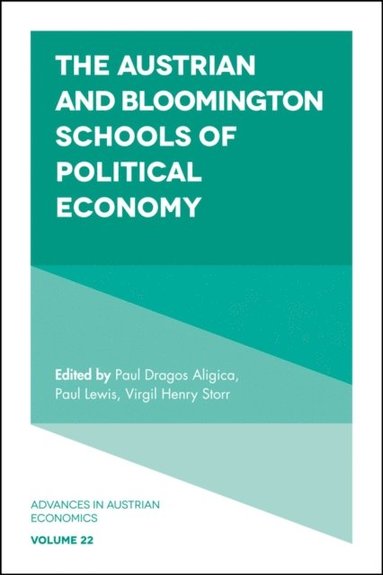
Fler böcker inom
- Format
- E-bok
- Filformat
-
PDF med LCP-kryptering (0.0 MB)
Om LCP-krypteringPDF-böcker lämpar sig inte för läsning på små skärmar, t ex mobiler. - Nedladdning
- Kan laddas ned under 24 månader, dock max 6 gånger.
- Språk
- Engelska
- Antal sidor
- 200
- Utgivningsdatum
- 2017-11-02
- Förlag
- Emerald Publishing Limited
- ISBN
- 9781787148437
Austrian and Bloomington Schools of Political Economy E-bok
E-bok (PDF, LCP),
Engelska, 2017-11-02
Finns även som
Kundrecensioner
Har du läst boken?
Sätt ditt betyg »
Fler böcker av författarna
-
Democratization
David S Potter, David Potter, David Goldblatt, Margaret Kiloh, Paul Lewis
-
Introduction to Theology - Declaring the Wonders of God
Frank D MacChia, Jerry Ireland, Paul Lewis, Frank MacChia, Frank D MacChia
-
Institutional Diversity and Political Economy
Paul Dragos Aligica
-
Challenging Institutional Analysis and Development
Paul Agos Aligica, Peter J Boettke, Paul Agos Aligica, Peter J Boettke, Paul Dragos Aligica
Du kanske gillar
-
Buddhism
Dale S Wright
E-bok -
Atomic Habits
James Clear
Trade paperback (UK) -
Buddhism
Dale S Wright
E-bok -
Peak Human
Johan Norberg
Häftad
